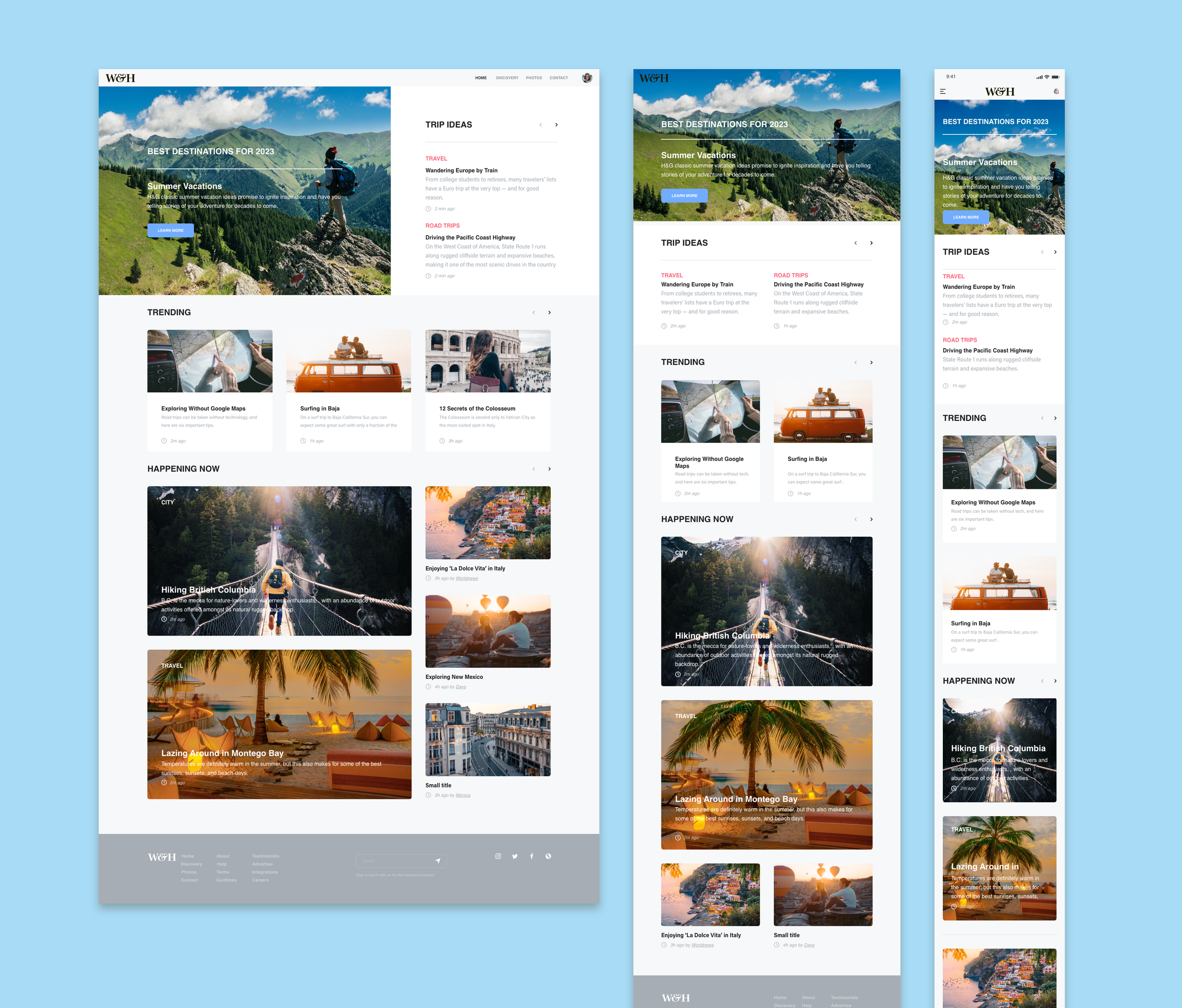Checklist to Create a Great Coaching Website
Is your coaching website working for you? Discover the elements every high-converting coaching site needs! Here’s the checklist for building a coaching website that converts
Creating a coaching website that genuinely reflects your brand and connects with clients can feel like a big task, but it doesn’t have to be overwhelming. With the right elements in place, your website can become a powerful tool for building trust, showcasing your expertise, and converting visitors into clients. This checklist will guide you through the essentials, from crafting a compelling homepage to adding client testimonials and easy booking options. Whether you’re starting from scratch or refining an existing site, these steps will ensure your coaching website is set up for success.
Simple Navigation: A clear, intuitive menu helps visitors find what they need—like services, about, and contact pages—without getting lost.
Responsive Design: Ensure the template works smoothly on all devices, from desktops to smartphones, for a consistent experience.
Engaging Visuals: Use high-quality images that showcase your brand and style. Features like parallax scrolling or animations can add a lively touch.
Sample website for life coaching business showing both laptop and mobile views.
Compelling CTAs: Look for templates that make it easy to add well-placed calls-to-action (CTAs) to book sessions, sign up for newsletters, or download resources.
Testimonials and Social Proof: Choose templates with dedicated spots for testimonials or client stories to build trust. Build trust with new visitors by sharing authentic stories from past clients. Highlight the transformation your services provide and make testimonials a central part of each page. A well-placed testimonial helps potential clients envision their own success and feel confident in choosing you.
Content Management: A built-in blog and clear service listings make it easy to share insights, showcase services, and keep visitors engaged. Ensure the template allows you to clearly present your coaching services and programs in an organized manner.
Customization Options: Select a template that lets you easily adjust colors, fonts, and layouts to match your brand.
Inclusive Design Elements: For better accessibility, choose templates with high-contrast text, scalable fonts, and options for alternative text for images. This widens access and shows inclusivity.
SEO-Ready: Templates with SEO-friendly features (like meta tags and schema markup) help improve search visibility.
Integrated Booking System: A template should ideally include or be compatible with scheduling software to facilitate easy booking of sessions directly from the website.
Contact Forms: Ensure customizable contact forms are available to collect inquiries from potential clients easily.
Sample coaching levels page on a website for life coaching business.
About Us Page: Let your personality and mission shine on the About Us page. Share your journey, values, and what drives you to help others. An honest and compelling About Us page gives visitors a sense of connection and reassures them that you genuinely care about their growth and success.
Highlight Your Expertise and Credentials: Showcase your professional background and unique skills to build credibility. Make your experience relatable by emphasizing the specific ways it benefits your clients. Present your credentials, certifications, and relevant achievements to reinforce your role as a knowledgeable, trusted guide.
Get Started: Encourage visitors to take the first step with a clear, actionable ‘Get Started’ page. Outline what clients can expect from working with you, and provide a simple path to booking a consultation or signing up. This page can ease any uncertainties and motivate visitors to engage with your services.
Blog and a Podcast for Career Growth: Share your insights and perspectives through a blog or podcast to position yourself as a thought leader. By consistently publishing valuable content, you attract potential clients, build authority, and create resources that reinforce your expertise and career growth.
Include Diverse and Community-Centered Content: Celebrate diversity and foster a sense of community by offering content that resonates with a range of experiences and backgrounds. Show that you understand and value different perspectives, making your brand relatable and welcoming to a broader audience.
Security: SSL support and data protection features are key for safe interactions with clients.
Booking & Contact Forms: Integrated scheduling and contact forms help streamline inquiries and session bookings.
Analytics: Ensure it supports Google Analytics or similar tools for tracking visitor behavior and conversions.
Final Thoughts
The right coaching website template enhances user experience, builds client trust, and supports growth through SEO, accessibility, and security. A well-structured template is essential for making your services shine.
Sample podcast page on a coaching website.
👋🏻 For more tips on website design check out these blog posts:







